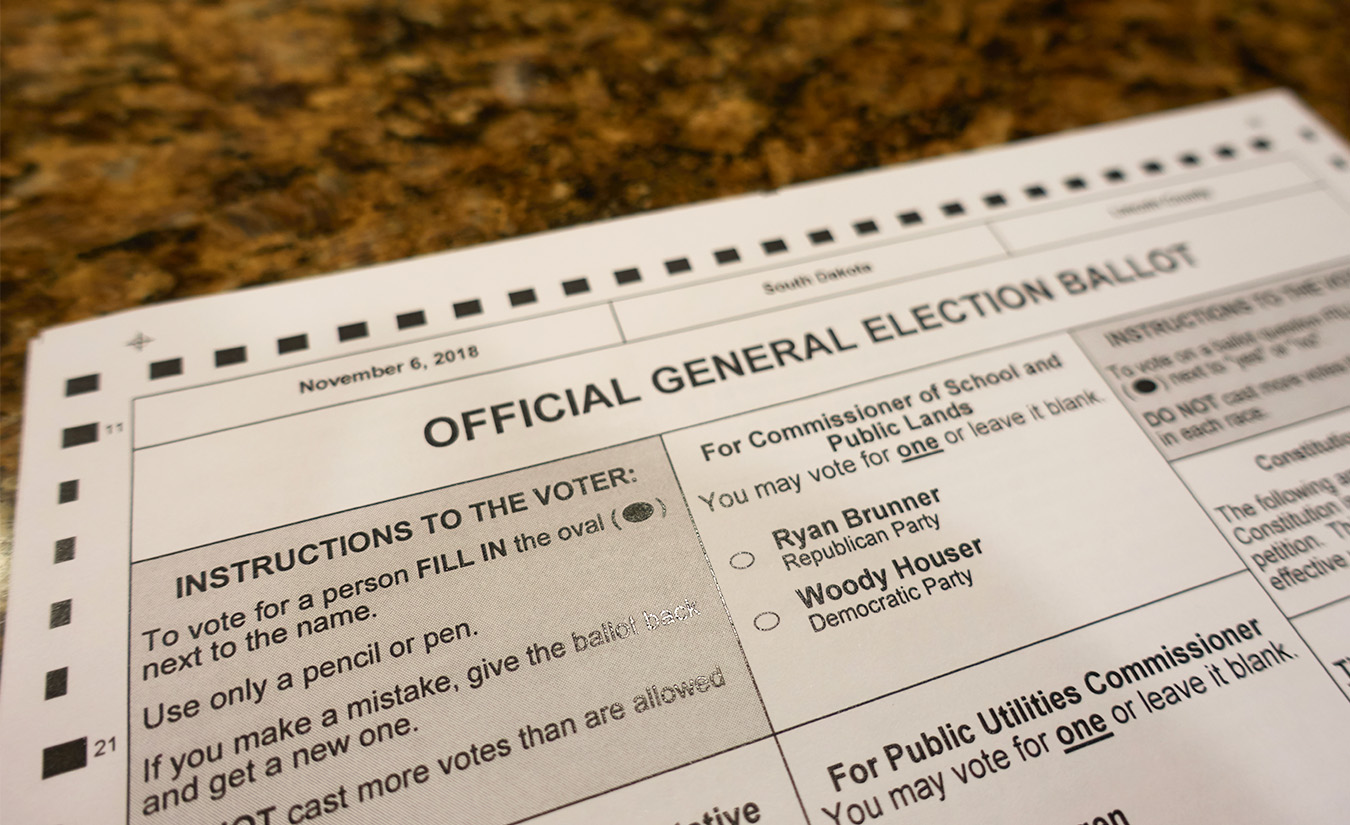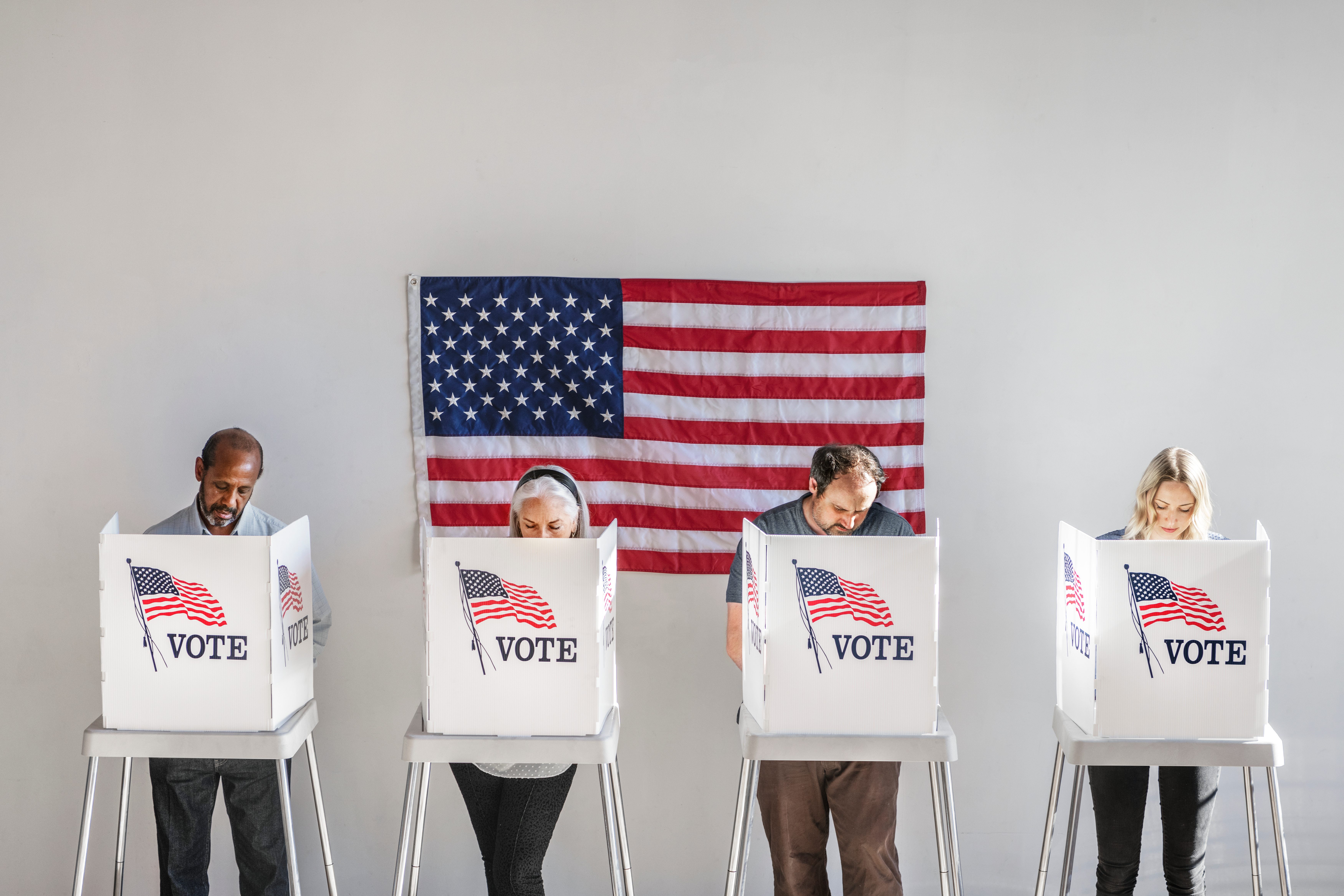As Election Day approaches — and with early voting underway — it’s tempting to let the presidential race dominate our attention. But it’s important to remember that our rights are at stake across all levels of government, from national offices to local races.
Your vote will have a direct impact on who makes important decisions for you and your community. Up and down the ballot, Indiana voters will have the power to hold local leaders accountable and influence policy at every level of government.
The ACLU of Indiana urges Hoosiers to become informed about what elected positions are on the ballot, and who is running. Being informed about how federal, state and municipal offices and positions impact your community is a key step to exercising your right to vote.
You can view what races will be on your ballot here.
Federal Races
U.S. Representatives & Senator
These elected officials represent Indiana at the federal level, voting on legislation in Congress. U.S. House races take place every two years, and U.S. Senate elections every six years. All nine of Indiana’s U.S. House seats and one of two U.S. Senate seats are on the ballot this year. Find out which of Indiana’s Congressional Districts you live in.
Indiana State-Level Races
Governor
Indiana’s governor is elected to a four-year term and is responsible for overseeing the day-to-day management of the functions of many agencies of the Indiana state government. They also hold the final authority on vetoing or signing laws passed by the Indiana General Assembly.
Attorney General
The Attorney General is the chief legal officer for Indiana. This position is responsible for enforcing Indiana’s laws and representing Indiana and state agencies before the state and federal courts. This position has broad authority to shape the state’s future policies and court precedent via litigation.
Indiana Legislators
This election, all 100 state House seats and half of Indiana’s 50 state Senate seats are on the ballot. These government officials draft legislation and vote on bills to became laws — including bills on abortion access, LGBTQ rights, free speech, criminal legal reform, and voting laws.
Each legislative session, the ACLU of Indiana keeps track of how state legislators vote on key issues impacting your civil rights and liberties. See how your representatives have voted in recent years:
- 2024 Legislative Scorecard
- 2023 Legislative Scorecard
- 2022 Special Legislative Scorecard on Abortion
- 2022 Legislative Scorecard
Indiana Supreme Court Judges
Three out of Indiana’s five Supreme Court justices are up for retention on the ballot. Supreme Court justices review and interpret whether Indiana laws violate the state constitution. While these judges are appointed by the governor, voters decide whether to keep them in power. This election is a rare opportunity, as justices face retention only two full years after their initial appointment and then every ten years thereafter.
Statewide Ballot Measure - Public Question #1
There will be a public question on the ballot this year asking voters if they support amending the state constitution to remove Indiana’s Secretary of Education from the line of succession if Indiana’s governor and lieutenant governor could no longer serve. In 2020, a law was enacted that changed the Indiana Department of Education's leadership from an elected position to an appointed one. Now, lawmakers have put this ballot measure up for a public vote they say to avoid an unelected person landing in Indiana’s highest office.
Municipal Elections
City and County Councilors
Members of city and county councils make executive, legislative, and financial decisions for the city, town, or county they are elected to represent. Councils create or change local laws (known as ordinances), resolutions, orders, and motions. They are also in charge of local tax policy and appropriating funds for city or town operation, including police budgets.
School Board Members
In Indiana, school boards are non-partisan positions and won’t be affiliated with a party on your ballot. Still, these positions can have a massive impact on school districts. These public officials manage budgets well into the millions of dollars, set district policies, conduct superintendent evaluation, and act as oversight into the districts’ programs. In recent years, there’s been a growth of elected school board officials pushing anti-LGBTQ+ measures and book censorship.
These are just some examples of what you might find on your ballot — to see which offices you’ll be voting on and see who’s running, visit IndianaVoters.com.


